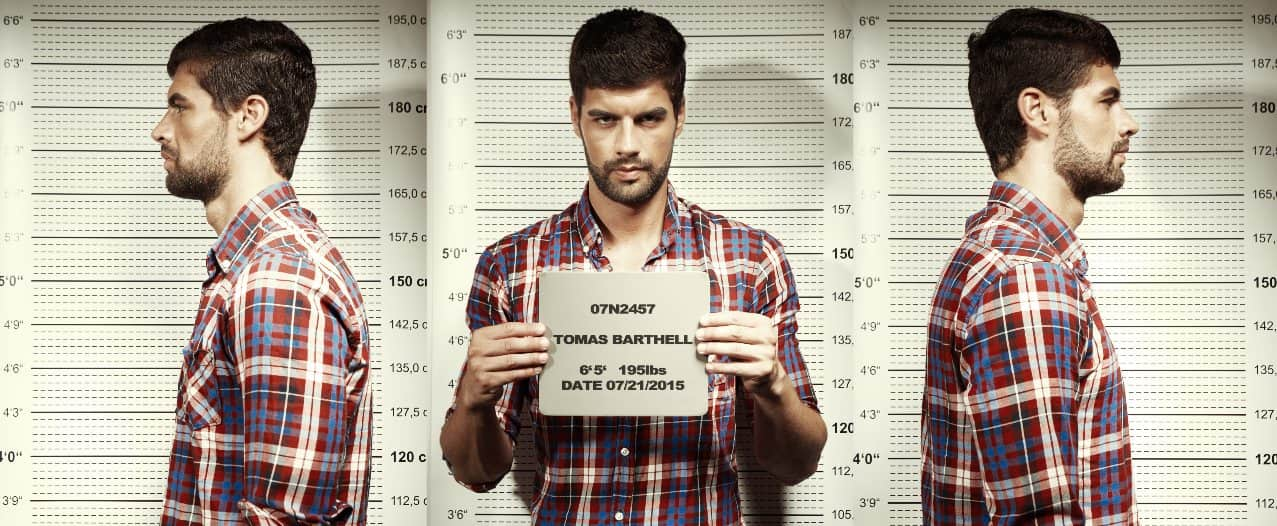The operative crime for child pornography is sexual exploitation of a minor, pursuant to ARS 13 3553. What is considered child pornography includes any “visual depiction” of a minor engaged in what the law calls an “exploitive exhibition” or other sexual conduct.
The actions that fall under child pornography pursuant to ARS 13 3553 include knowingly:
Any visual depiction of a minor engaged in exploitive exhibition or sexual conduct.
The bottom line when it comes to child pornography is that whatever the particular format of the depiction may be (hard copy photograph, digital image, etc.), it is likely covered under the law, and that the fact that there was no actual intercourse, for example, may not be a defense.
The following terms are important, particularly if you are facing a child pornography charge:
A visual depiction, within the meaning of the Arizona child sex laws, includes (a) any image, whether contained in film (developed or undeveloped), a photograph or any data (stored in any form) that is (b) capable of being converted into a visual image.
This is defined under ARS 13-3551(5) as the exhibition of the genitals, the pubic area, or the rectal area of anyone for purposes of sexually stimulating the viewer. The exhibition, to fall under the statute, can be either actual or simulated, meaning it can be a depiction of the genitals, for example, giving the appearance that there is or is about to be sexual conduct.
Sexual conduct means sexual intercourse (oral, genital, or anal), bestiality, or sexual penetration by an object.
Under ARS 13 1405, the Arizona age of consent is 18 years old. This means that a person under the age of 18 cannot legally consent to sexual contact with an adult, and technically a juvenile for that matter.

In addition to child pornography in general, there is a separate crime in Arizona, known as commercial sexual exploitation of a minor pursuant to ARS 13-3552. That offense, also a class 2 felony, involves, in essence, producing, advertising, inducing a minor’s participation in, financing or otherwise being engaged in child pornography for commercial gain.
Commercial sexual exploitation of a minor in Arizona also includes any advertisement for prostitution that includes an image of a minor. If you or someone you know is facing such charges, it’s critical to consult a skilled Phoenix Child Pornography Lawyer to protect your rights and navigate the legal complexities ahead.

A conviction for child pornography in Phoenix will usually lead to severe penalties. As noted above, sexual exploitation of a minor in Arizona, is a class 2 felony. If you are convicted of sexual exploitation of a minor or commercial sexual exploitation of a minor in Phoenix, and the
Minor Depicted is Between the Ages of 15 and 17:
Minor Depicted is Under the Age of 15:
If the minor depicted in the image or movie is under 15, the defendant will be sentenced in accordance with ARS 13-705, relating to Dangerous Crimes Against Children (DCAC).
Arizona’s dangerous crimes against children law pursuant to ARS 13-705, mandates that anyone convicted of certain enumerated crimes shall receive a harsher sentence and that probation is not available.
Whether the conviction is for sexual exploitation of a minor or commercial exploitation of a minor, placement on the Arizona sex offender registry will be required. Arizona sex offender laws pursuant to ARS 13 3821, require those convicted of child pornography to register as a sex offender and be placed on the Arizona sex offender register.
Sex offender registration can also be required by the judge if you are convicted of a sexual offense under chapter 14 of title 13 (including sexual abuse, child molestation and statutory rape), and the judge determines that the crime was sexually motivated pursuant to ARS 13-118.

In a majority of cases, particularly those investigated by law enforcement, the child pornography charge involves use of the internet. This means, by its very nature, that computers and computer software is involved. In addition, the age of the alleged victim will always be an issue in a child porn case. As a result, in addition to defenses relating to false accusations, coerced confessions, illegal search and seizure, and the like, there are other defenses which may apply in your case. Here are some of them:
Police investigators often attempt to track child porn by using specialized software tools. Those tools are supposed to trace child porn to specific locations, and even specific computers.
There have been numerous instances, including at least one in the greater Phoenix area, where the software wrongfully detected and tracked porn to a computer with no porn on the hard drive. In other cases, prosecutors were unable to explain sufficiently how the software worked, which damaged the ability of the police to support constitutional validity of the search that led to the seizure of the computer files in question.
Many computers, perhaps most, are used by more than one person. Sometimes those people are friends, sometimes they are family, but the crime of sexual exploitation of a minor requires that the possession of the images, for example, must be knowing.
The knowing element of the offense, like all others, must be proven by the prosecution beyond a reasonable doubt. If four people have access to the computer, the fact that the computer contains a child pornography image will not, in and of itself, be enough to convict anyone who has used the device.
Just because someone sent you an image that you did not want does not mean that you are guilty of child pornography pursuant to ARS 13 3553. Because the State must prove that you knowingly viewed child pornography accidental viewing of child pornography is not necessarily criminalized.
Images which appear to be photos, but which in fact have been modified digitally, may not show either real children or children actually engaged in the conduct described in the statute. As such, virtual child pornography is not criminalized in Arizona.
The fact that an image appears to show a minor is not proof that the person was in fact underage. Similarly, images which depict a child for which DCAC does not apply may have an impact on any child pornography sentence, regardless of how the prosecution chooses to charge the case.
Obviously, additional defenses may also be available, depending upon the facts in your case. By contacting an Arizona sexual exploitation of a minor lawyer and explaining the details of your specific case, additional defenses may be developed.
The essence of a child pornography charge, or sexual exploitation of a minor, is the possession or filming of minors engaged in sexual conduct.
Unlawful disclosure of images or “revenge porn” pursuant to ARS 13-1425, criminalizes the intentional disclosure of certain images (nudity, sexual activity, where the alleged victim is identifiable). Unlawful disclosure does not require the involvement of a minor, although if a minor is depicted, there could be an overlap between the two offenses.
Surreptitious recording pursuant to ARS 13-3019, focuses on invasion of privacy. It does not require that the film or photo capture sexual conduct (although it could), nor does it require the involvement of a minor.
The crime of surreptitious filming involves secretly recording adults in a bathroom while the person is urinating or undressing or capturing a photo of a person’s genitals (or the female breast) when that view is not available to the public.

Child pornography in Arizona is a serious charge. However, there are many possible defenses that may be applicable in a given set of circumstances. Moreover, questions may exist regarding whether the acts in question even fall within the definition in the statute. To find out where you stand, and what defenses may be applicable in your case, contact an experienced child pornography lawyer.
At Feldman & Royle our defense attorneys in Phoenix offer a free and confidential consultation with a child pornography lawyer to help you better understand the law surrounding the sexual exploitation of a minor as well as the applicable defenses.

No tags assigned to this post.